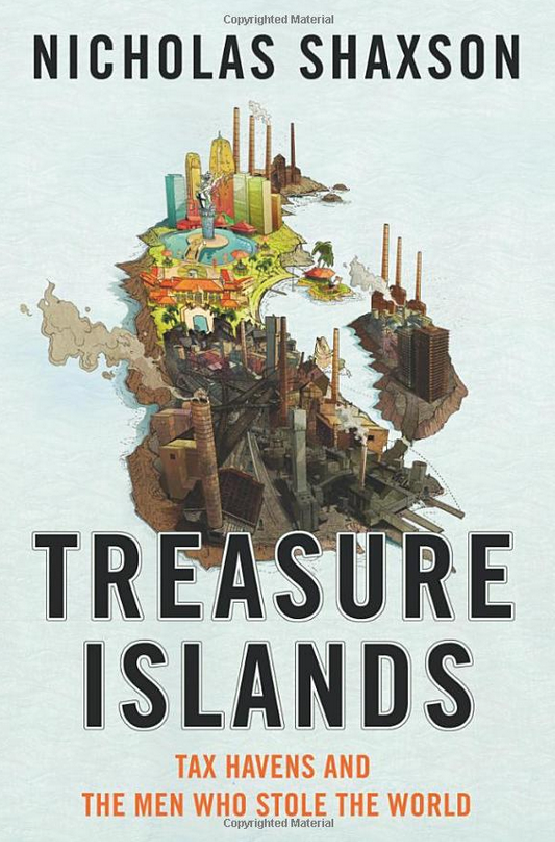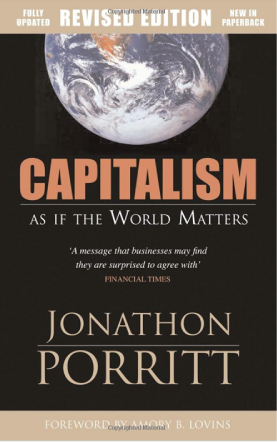Tyrannosaurus Rex is the deregulator here and the enormity of the financial gaming of this predator that Shaxson lays bare will leave you gasping - worse than before - all over again. Deregulation on this scale is sucking infinities into our operational-model-of-the-world at an accelerating rate. This guarantees the explosion that is now becoming globally eco-cidal in scale. It is terrifying.People who carefully write books like the one below - Capitalism as if the World Mattered - need to reappraise and be more focused and more resolved about what they and we all are really up against, if fatally dangerous rates of climate change are to be averted.
Just as C&C is "inevitably required" to achieve UNFCCC-compliance and survival, climate-calamity and extincition are the inevitable consequences of no C&C. As things stand, this is the only credible threat to these 'off-shore'-Treasure Islands' dinosaurs - the 'men who stole the world' are actually killing it [themselves included].
That's the choice that 'Capitalism' faces. Fighting to ensure that the right choice - the survival choice - is made is the fight we cannot avoid. If primarily we measure in money, the fight is lost, the 'world doesn't matter' and sadly we're doomed. Shaxson doesn't directly address this, but with the intensity of white light, realizing this is the inevitable consequence of what he has exposed.
What we need is a War on Error. Shaxson has revealed the near-depthlessness of the error on which this war must now be made.
Treasure Islands - Tax Havens and the Men Who Stole the World
Nicholas Shaxson
"The assiduous campaigning over the last decade by the Global Commons Institute (based on its idea of 'contract and converge', under which the rich nations undertake to reduce emissions even as developing nations are permitted to grow their emissions until such time as per capita emissions converge at the same level) has given this kind of approach some real credibility. So, too, has the growing readiness of developing countries such as Brazil, Indonesia and Argentina to accept emissions targets for their own counties - not least because they too are already beginning to feel the impacts of climate change. The real strength of this approach is that it is based upon a trading system, with rich nations needing to purchase additional carbon credits from poorer nations. This appeals a lot to those campaigning for global economic justice: a global trading system in carbon would begin to shift substantial resources from rich countries to poor countries as nations with wasteful, carbon-intensive lifestyles have to purchase additional carbon credits from nations with low-carbon economies."
"Capitalism as if the World Matter"
Jonathon Porritt & Amory Lovins
C&C Endorsements from Right and Left
Why not Follow @aubreygci
Why not
Tweet
this?


